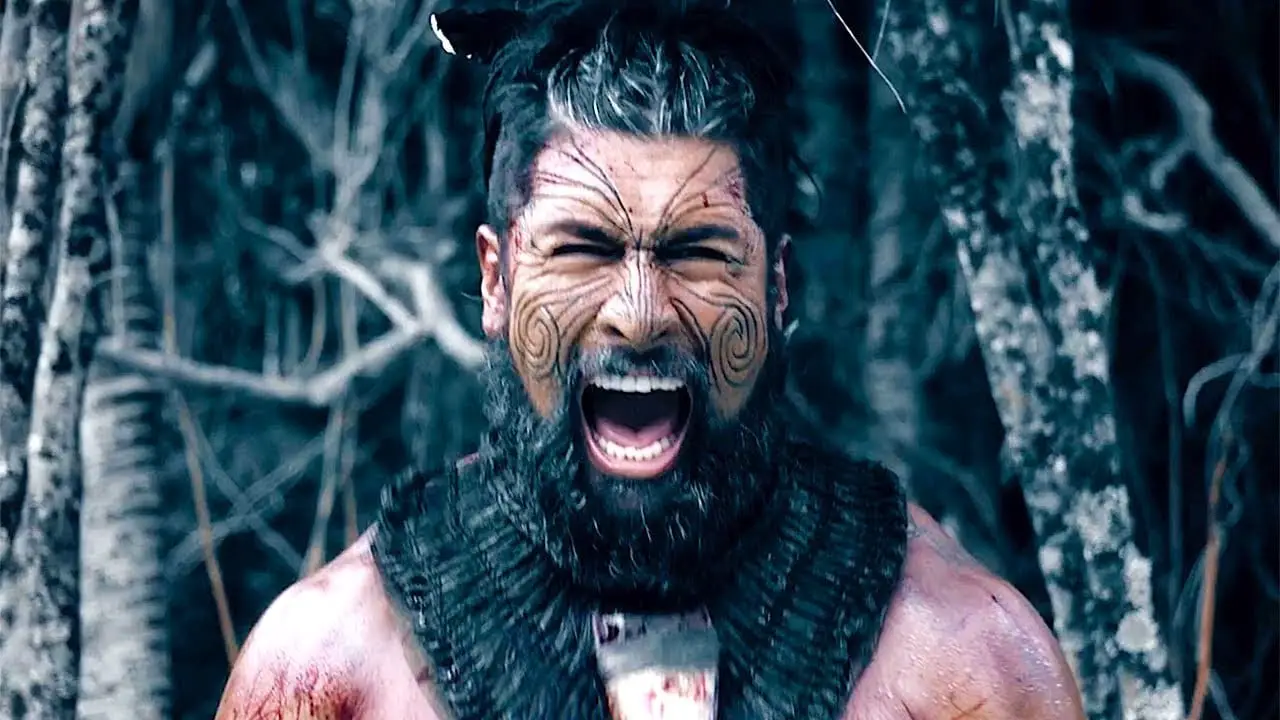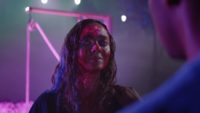The Dead Lands is an ancient world where myths and legends are very real in a fantastical jungle inhabited by a tribe that mimics the Maori culture. The protagonist, Waka Nuku Rau, is an ethically ambiguous hunter, a legendary one at that, who had a reputation for slaying people either for fun or as the show’s secondary protagonist Mehe likes to put it “for any price”. Within the first few minutes of the show, he is killed. Quite unceremoniously as he takes a stab in the back by strangers or more than likely those who didn’t like him much. Surprise surprise huh?
From then on, there is only one place to go for the dead, and he manages to get to the gate of the afterlife where only revered people go. It becomes clear to him that he can’t get in and a guardian of the gate explains that since Waka is a man of lesser values and poor life choices with gray morality serving as motivation, he is not allowed in. He soon learns that there are others who can’t get into the pristine afterlife that lays behind a skimpy gate. These others who are frightening, savage, and undead. He must earn his way into those gates, and soon because the longer he waits, the more he has to look forward to becoming a freakish walking dead man.
Waka must learn honor, for honor is what he needs as a defining personal trait to get into the pearly gates. He comes across the secondary main character Mehe who has problems of her own. The undead are terrorizing her village and she seeks Waka for the solution, guided by the belief that he is the greatest of warriors despite his dishonorable means of achieving his ends. She knows he will kill anyone if the price is right. When she comes across Waka, she offers him the village’s prized possession, a precious ceremonial blade. Waka isn’t having it. He doesn’t believe that what she wants him to do is honorable enough. The two set off on a journey to find Mehe’s father who was taken by the undead, and for Waka to help battle them along the way.

The show interweaves gore and humor in equally entertaining amounts. After a blood bath comes a snarky exchange between Waka and Mehe, which often demonstrates that the two have plenty of comedic chemistry. They compliment each other seamlessly throughout the episode and much more of their wit is anticipated for the upcoming episodes. The lore is interesting and reflects the hard work the researchers for the show put in. The costume design in the show is unique and meticulously curated, right down to the facial tattoos on the women’s chins and the tiny embossments on the armor. The addition of feathers and animal bones on the clothing is a personal favorite.
This ancient world has an interesting interpretation of zombies. While the idea of the dead coming back to life isn’t new, the approach in the show is addressed in a unique twist. In both episodes, the undead bear similarities to the living. The undead are vicious, but so are the living. Both are tenacious and formidable. They aren’t nearly as decayed as the shufflers in The Walking Dead as much as they are the quick-paced, snarling monsters from Return of the Living Dead. Instead of being listless shufflers, they snarl, whip their bodies around like lunatics, and hiss. Too close in relation to the living for comfort, one might say.
These creatures are damned to walk the earth in a state of physical and spiritual limbo. They reflect the darkness of humanity’s carnal instincts like most other undead creatures, however, they also represent dishonor and other abstract ethics thrown to the wayside in that person’s life. It is said that these creatures were once normal humans and were cast into the gray limbo for the ill deeds of their past life. Perhaps this hints at the nature of what makes a human separate from the animals, the honor and respect with which they treated themselves and others. The egoistic and banal nature of the undead left them reduced to animal instincts of blood lust, rage, and hunger. They are driven by the sheer will to survive, no matter what the cost to others, yet somehow they were human before. Their existence walks the blurred line between humanity and animalism, raising plenty of interesting questions for the audience to ponder. They are what Waka must avoid becoming if he’s to reclaim his honor and access the realm of the ancestors for the benefit of a peaceful afterlife.
The dead feed on the living perhaps for sustenance, yet perhaps for more. It’s unclear. This really is an interesting idea to delve further into as the show advances into the further episodes and hopefully it will explore them in the future. Whether there are thematic or symbolic reasons for this approach is up to the viewer to decide, however it might be that the veil between the living world and that of the dead is very thin. Even at the gates to the Ancestor’s home is shrouded in a gray haze of mist, the color of obscurity a perfect metaphor for Limbo where Waka, unfortunately, returns at the end of both episodes for a post-climax punch in the tag scene.

Overall, The Dead Lands is an exciting adventure placed in a mystical alternate reality in the beautiful New Zealand jungles. It’s the right amount of action, suspense and a bit of humor sprinkled in.
The Dead Lands is available to stream on Shudder.


